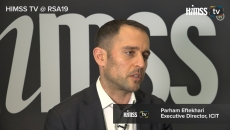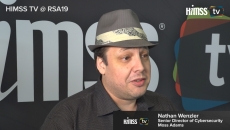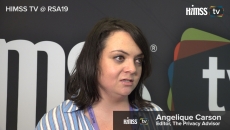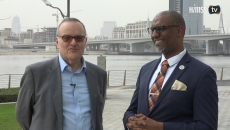Risk Management
At MEDinIsrael in Tel Aviv, Leon Lerman, CEO of Cynerio, shares how his company keeps smart medical devices and hospital networks safe from cyberattacks.
There's room for improvement in transparency and patient identification, but there's also the potential for blockchain to be corrupted, says Wende Hutton, general partner at venture capital firm Canaan Partners.
Hospitals have to make manufacturers realize that prospective clients are buying based on security, says Parham Eftekhari, executive director of the Institute for Critical Infrastructure Technology.
The idea that AI needs no management is a myth, says Nathan Wenzler, senior director of cybersecurity at Moss Adams. Instead, smart people must be involved to make decisions about the data and findings.
Andrew Pendergast, VP of product at ThreatConnect, talks about providing external threat intelligence as well as skepticism about AI.
Despite the moaning and groaning leading up to the European Union's General Data Protection Regulation, EU citizens are better protected now that it's in place, says Angelique Carson, editor of The Privacy Advisor at IAPP.
Healthcare CIOs can learn from the trends in state security, compliance and strategies, says Maggie Brunner, program director of Cybersecurity, Emergency Communications & Technology with the National Governors Association.
Jason Johnson, information security officer at Marin General Hospital and HIMSS Northern California Chapter president-elect, explains why a security leader must not lose the faith of users.
Mazin Gadir, senior consultant and advisor with the Dubai Health Authority, discusses the goals of the city's ambitious health strategy, including transforming healthcare into a world-class, sustainable, innovative system.
Adrien Gendre, chief solutions architect at Vade Secure, on the biggest threats to email security and why users are no longer the weakest link in the security chain.









